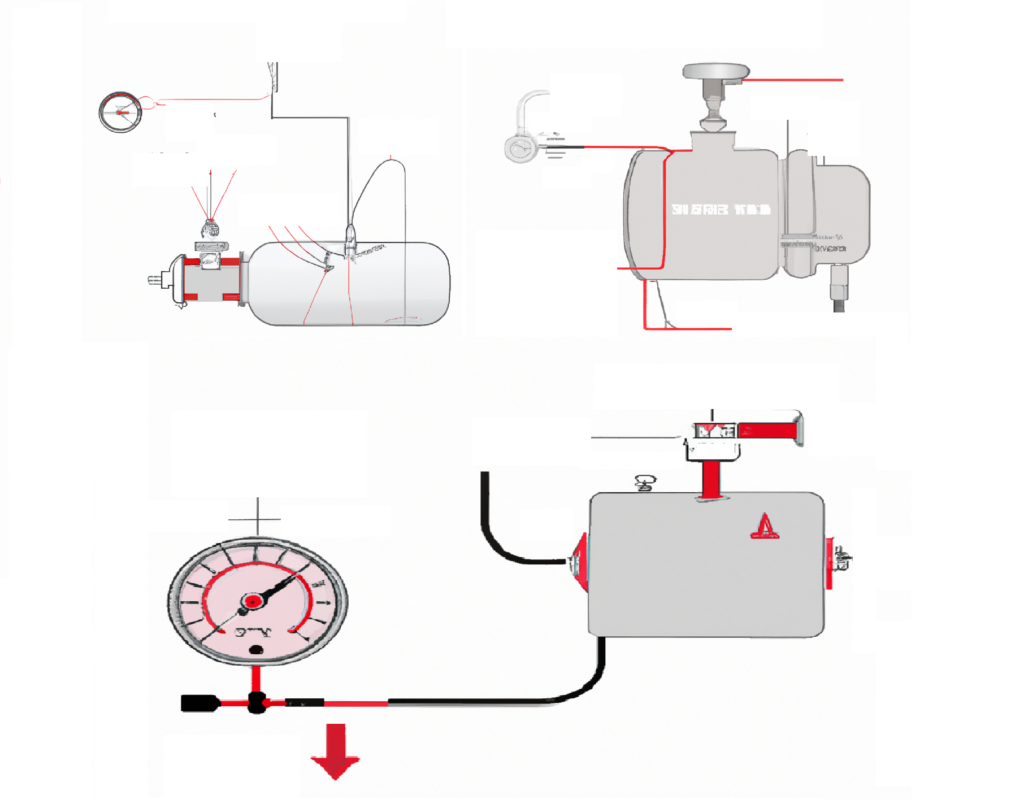If you buy using links on this page, we may earn a commission.

High-Pressure Fuel Pump: The Powerhouse of Combustion
The Role of HPFP
The high-pressure fuel pump takes on the challenging task of increasing fuel pressure to an extent that allows for efficient atomization and combustion within the engine cylinders. This process is essential for generating power and propelling the vehicle forward.
GM Genuine High Pressure Fuel Pumps
EP1028
Our Review
Works fine with mazority vehicles but might something stay on for a few seconds after turning off.
HPM1045
Our Review
Fixed the issue for a lot for people but i got the product a little late then the delivery was due.
What is N54 and what is it used for ?
The N54 high-pressure fuel pump is a critical component in the N54 engine, which is a twin-turbocharged inline-six engine produced by BMW. This engine was used in various BMW models, particularly in the 1 Series, 3 Series, 5 Series, and X6, during the mid-2000s to early 2010s.
The N54 high-pressure fuel pump is responsible for pressurizing the fuel before it is injected into the engine’s combustion chamber. It plays a crucial role in ensuring that the engine receives an adequate and consistent supply of high-pressure fuel, which is essential for efficient combustion and power generation.
GM Genuine Mechanical Fuel Pump
HPM1008
Our Review
Comes with all the parts, gaskets and fuel pump but sometimes the gasket can be missing.
HPM1006
Our Review
This part a lot cheaper in amazon than local store. And it worked perfectly in our case
GM Genuine Fuel Pump and Level Sensor Module with Seal
MU1639
Our Review
Sometimes they sent an updated unit, replaced the sender due to the pressure side steel line can start leaking
What are Direct Injection (DI)?
In traditional engines, fuel is injected into the intake manifold before it enters the combustion chamber. In contrast, direct injection systems skip this step. Instead, they deliver fuel directly into each cylinder’s combustion chamber, which offers several advantages.
Delphi Direct Injection High Pressure Fuel Pump
Hitachi Direct Injection High Pressure Fuel Pump
HPP0006
Our Review
Worked fine with our vehicle. But They said it fits with 2011 Audi A4 Quattro 2.0T but its not even close
Carter Fuel Systems Electrical Fuel Pump

High Pressure Fuel Pump Failure Symptoms: Is Your Engine in Trouble?
Your vehicle’s engine is a complex assembly of components, and among the most critical is the high-pressure fuel pump. Responsible for delivering pressurized fuel to your engine’s combustion chambers, it plays a pivotal role in your vehicle’s performance. But what happens when it starts to falter? In this article, we’ll explore the telltale signs of high-pressure fuel pump failure, helping you diagnose issues before they become costly repairs.
The Silent Engine Champion: High-Pressure Fuel Pump
Understanding the HPFP
What is the High-Pressure Fuel Pump (HPFP)?: Before diving into symptoms, it’s essential to grasp the HPFP’s significance. It’s a component responsible for maintaining the fuel pressure required for efficient combustion.
The HPFP’s Critical Role: This pump ensures that the engine receives the precise amount of pressurized fuel needed for optimal combustion and power generation.
Unmasking the Symptoms
Signs Your High-Pressure Fuel Pump is in Trouble
Rough Engine Idle (H2)
When your engine’s idle becomes rough or erratic, it could be a sign of HPFP problems. Inadequate fuel delivery can lead to uneven combustion.
Engine Stalling (H2)
Frequent engine stalling, especially at idle or low speeds, may indicate fuel pump issues. A failing HPFP can’t maintain consistent fuel pressure.
Loss of Power (H2)
If you notice a significant drop in engine power or acceleration, it might be due to insufficient fuel delivery from the HPFP.
Poor Fuel Efficiency (H2)
A decrease in fuel efficiency, evidenced by reduced miles per gallon, can be linked to the fuel pump’s inability to deliver fuel efficiently.
The Role of Noise
Unusual Noises (H2)
Listen for strange noises from your engine bay. Whining, ticking, or clicking sounds may suggest HPFP troubles as it struggles to maintain pressure.
Diagnostic Trouble Codes (DTCs)
Check Engine Light (H2)
A persistent check engine light, accompanied by diagnostic trouble codes related to fuel pressure, can point directly to HPFP problems.
The Consequences of Ignoring Symptoms
Engine Damage (H2)
Continuing to drive with a malfunctioning HPFP can lead to engine damage, potentially resulting in costly repairs.
Reduced Performance (H2)
Ignoring these symptoms compromises your vehicle’s performance, which can be frustrating and dangerous in certain situations.
Diagnosing and Addressing the Issue
What to Do If You Suspect HPFP Failure
Consult a Mechanic (H2)
When you notice any of these symptoms, it’s crucial to consult a qualified mechanic promptly. They can perform diagnostic tests to confirm HPFP issues.
Replacement (H2)
If diagnosed with a failing HPFP, it’s typically necessary to replace the pump to restore your vehicle’s performance and efficiency.
Your vehicle’s high-pressure fuel pump is a silent hero, ensuring your engine runs smoothly and efficiently. Recognizing the symptoms of HPFP failure early can save you from costly repairs and keep your vehicle running at its best. When in doubt, consult a professional mechanic to diagnose and address any fuel pump issues promptly.
FAQs
1. Can I drive my car with a failing HPFP?
It’s not recommended. Continuing to drive with a failing HPFP can lead to engine damage and increased repair costs.
2. Are HPFP issues common in all vehicles?
While HPFP problems can occur in any vehicle with a high-pressure fuel system, they are more prevalent in certain makes and models.
3. Can poor-quality fuel contribute to HPFP failure?
Yes, using low-quality or contaminated fuel can accelerate HPFP wear and contribute to failure.
4. How often should I replace the HPFP?
HPFP replacement intervals vary by vehicle and usage. Refer to your vehicle’s manual for manufacturer recommendations.
5. Can regular maintenance prevent HPFP issues?
Regular maintenance, including using quality fuel and following manufacturer-recommended service intervals, can help extend the lifespan of your HPFP and reduce the risk of failure.










